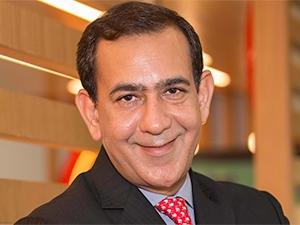
Digital technology is allowing emerging markets to create solutions unique to their situation, and have that technology adopted by more developed nations.
This was discussed at the MasterCard Innovation Forum taking place in Budapest, Hungary this week.
Raghu Malhotra, Mastercard MEA president, said he firmly believes the days when emerging markets are the last to get new technologies are over. He said this is because consumers in these areas have different demands that need to be catered to.
He noted an example of this at infrastructure government level would be Egypt, which is creating an interoperable mobile system which allows for digital payments no matter which telecoms company or bank the person uses.
Malhotra said other countries are adopting this standard as they push to increase the percentage of their 'banked' population.
Mark Elliott, Mastercard SA division president, said yesterday's announcement of the City of Ekurhuleni offering ratepayers Masterpass as a payment method, is an example of how emerging markets can use digital technology to help serve pain points for their constituents. Ekurhuleni is the first local government authority in the world to offer this.
In SA, the company recently worked together with rival VISA and Payments Association of South Africa, to develop a new interoperable specification to facilitate biometric authentication on payment cards.
This means a card issued at one bank, with specific biometrics, will work at another's ATM and merchants, with the same biometrics. This standard is a world first, and the companies involved aspire for it to be taken globally.
Elliott said it will be interesting to see if and how the banks adopt the new technology.
While emerging markets will play a role in shaping the future, Dr Carsten Sorensen, digital innovation associate professor at the London School of Economics (LSE) and Political Science and a speaker at the conference, said it is difficult to predict innovation.
However, he pointed out there are three major areas that will drive change in both emerging and developed markets.
These are digitisation, disrupted connectedness and artificial intelligence. "Digitisation will ruin some businesses and build up completely new ones."
He quoted LSE student Mick Jagger, who said: "I got into the music business when making records started to earn you money and got out when it stopped," to illustrate how the music business has been destroyed by digitisation, and new business models have had to be created.
"Disrupted connectedness means people are all now connected through digital services wherever they are, which means new consumer behaviour will begin to emerge and companies will have to adapt to them."
Examples of these behaviours include being able to compare prices, using a smartphone, while in store shopping, and how applications like WhatsApp Calling and Skype make calls to 'far away lands' cheaper and more frequent.
Sorensen noted computing power is doubling in shorter time periods and what was impossible a few years ago, is now commonplace. He said the world will be a very different place in five years' time due to artificial intelligence.
He cited the recent survey done by Mastercard to show consumers are ready for this and there is a bottom-up drive for innovation within all industries.
Share